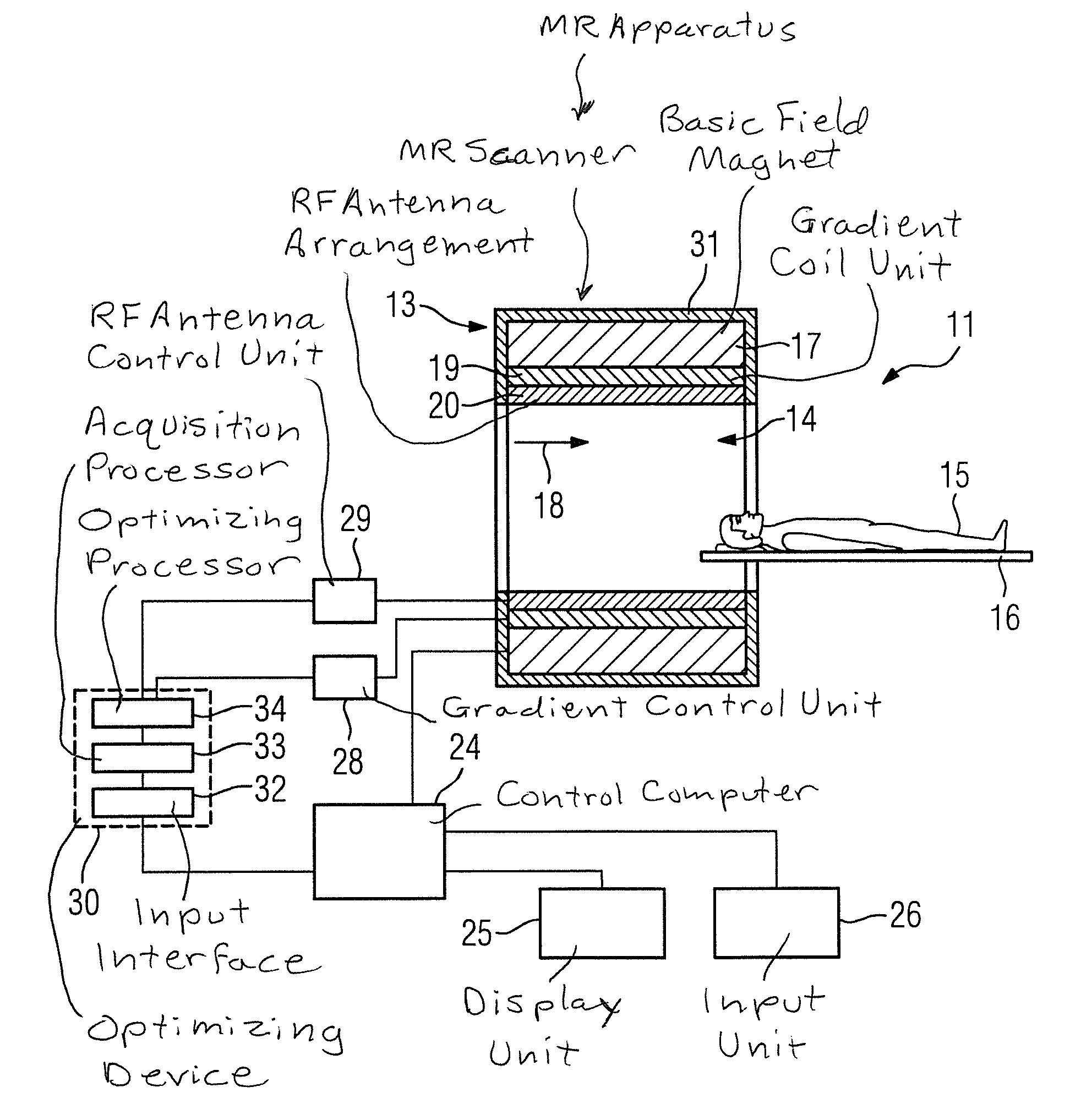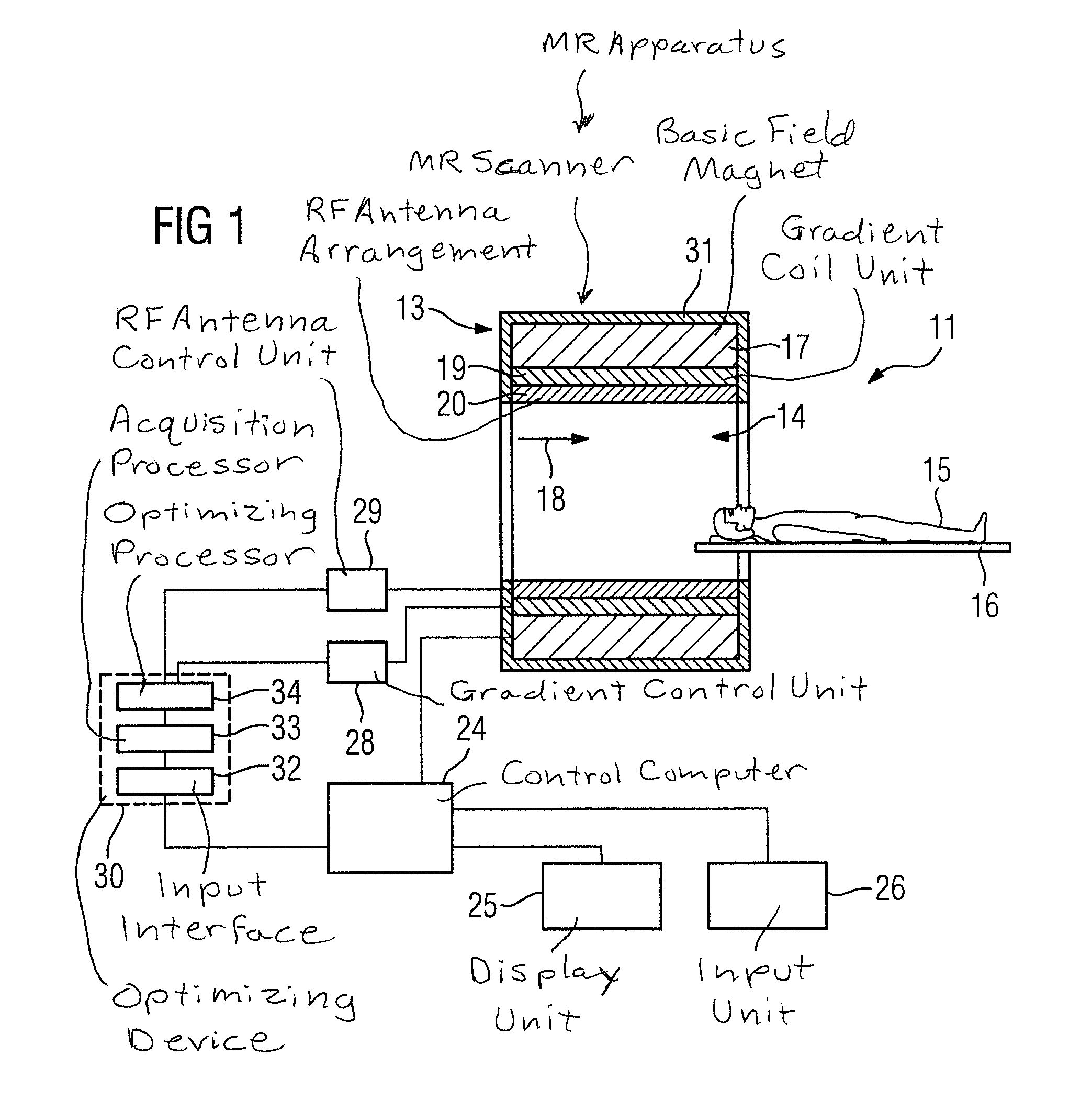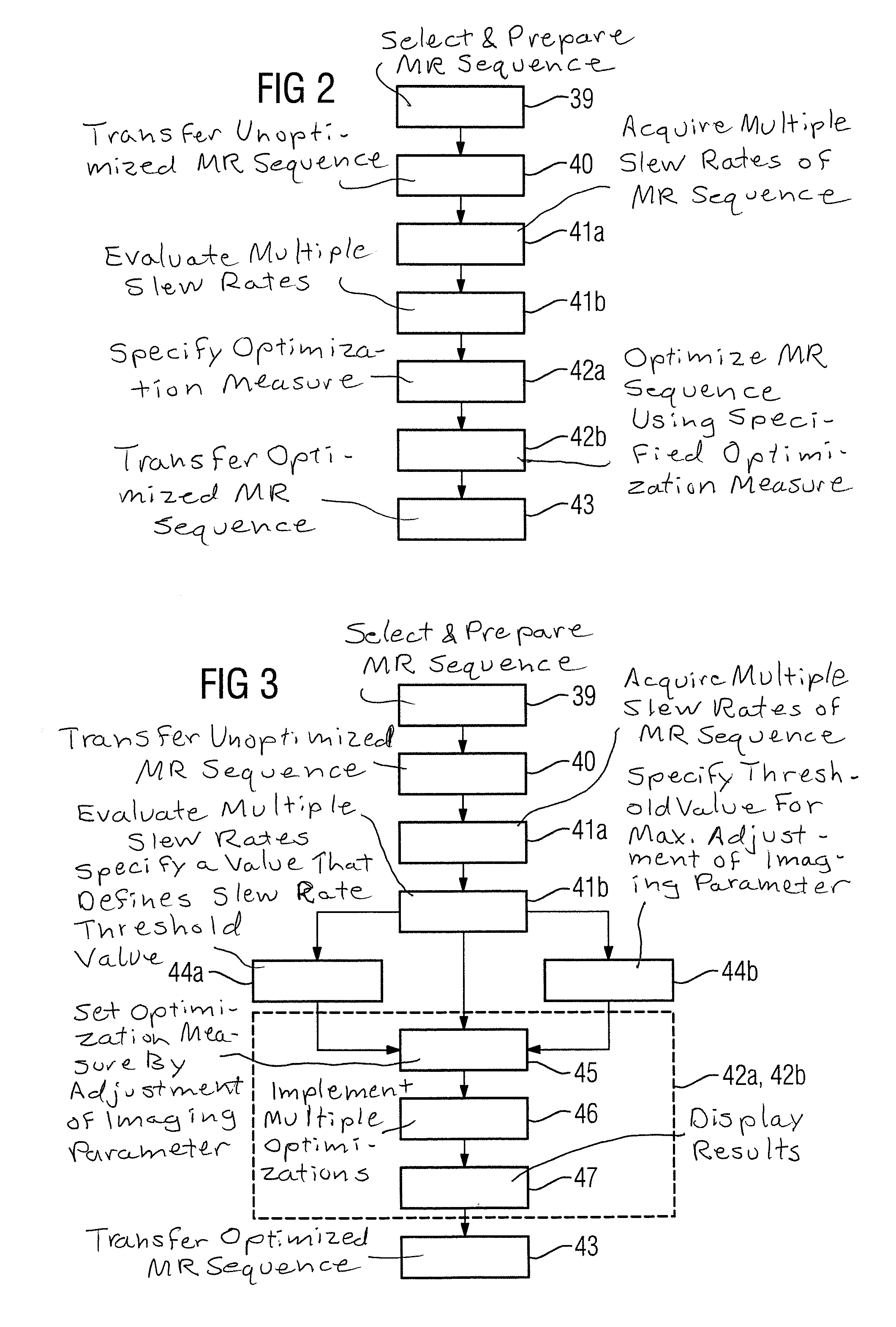Method and device for optimizing a magnetic resonance sequence
a magnetic resonance sequence and optimization method technology, applied in the direction of reradiation, measurement using nmr, instruments, etc., can solve the problem of high level of loudness of magnetic resonance scanners, and achieve the effect of optimizing the magnetic resonance sequen
- Summary
- Abstract
- Description
- Claims
- Application Information
AI Technical Summary
Benefits of technology
Problems solved by technology
Method used
Image
Examples
first embodiment
[0042]FIG. 2 is a flowchart of the method according to the invention. In the embodiments shown in FIGS. 2 and 3, the optimization of the magnetic resonance sequence takes place largely automatically. Alternatively, it is also possible for method steps which take place automatically in the embodiments of FIGS. 2 and 3, to be carried out manually and vice versa.
[0043]In a first method step 39, initially a selection and preparation of a magnetic resonance sequence of the magnetic resonance device 11 is carried out in the usual way. This means that typically a user stipulates, via the input unit 26, the type of magnetic resonance sequence and / or seeks a suitable protocol in which a particular magnetic resonance sequence is defined. The protocols contain various imaging parameters for the respective magnetic resonance sequence. These imaging parameters include particular basic data for the desired magnetic resonance sequence, for example, the type of magnetic resonance sequence, that is,...
second embodiment
[0049]FIG. 3 shows a flowchart of the method according to the invention.
[0050]The following description is essentially restricted to the differences from the exemplary embodiment in FIG. 2 wherein, with regard to method steps which remain the same, reference can be made to the description of the exemplary embodiment in FIG. 2. In principle, the same method steps are essentially identified with the same reference signs.
[0051]The second embodiment of the method according to the invention shown in FIG. 3 essentially includes the method steps 39, 40, 41a, 41b, 42a, 42b, 43 of the first embodiment of the method according to the invention as shown in FIG. 2. The second embodiment of the method according to the invention shown in FIG. 3 has further method steps and sub-steps. Also conceivable is an alternative method sequence to that of FIG. 3, which has only part of the additional method steps and / or sub-steps represented in FIG. 2. Naturally, an alternative method sequence to that of FIG...
PUM
 Login to View More
Login to View More Abstract
Description
Claims
Application Information
 Login to View More
Login to View More - R&D
- Intellectual Property
- Life Sciences
- Materials
- Tech Scout
- Unparalleled Data Quality
- Higher Quality Content
- 60% Fewer Hallucinations
Browse by: Latest US Patents, China's latest patents, Technical Efficacy Thesaurus, Application Domain, Technology Topic, Popular Technical Reports.
© 2025 PatSnap. All rights reserved.Legal|Privacy policy|Modern Slavery Act Transparency Statement|Sitemap|About US| Contact US: help@patsnap.com



